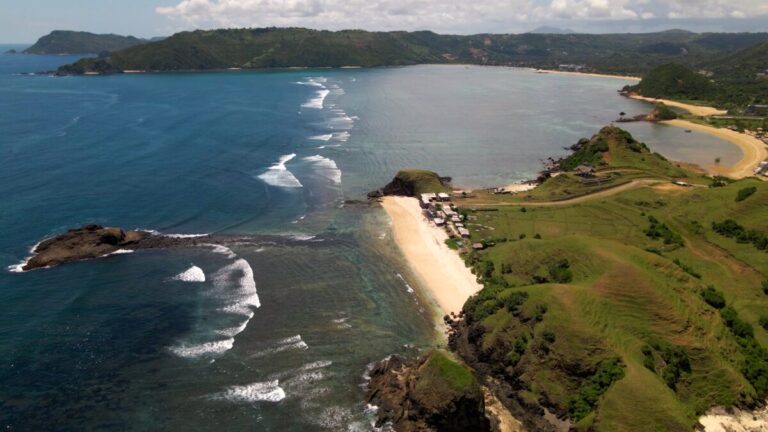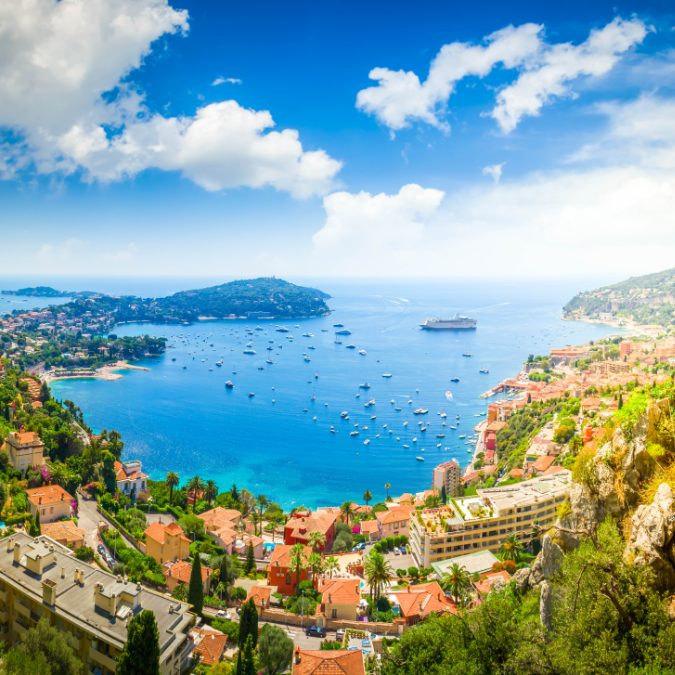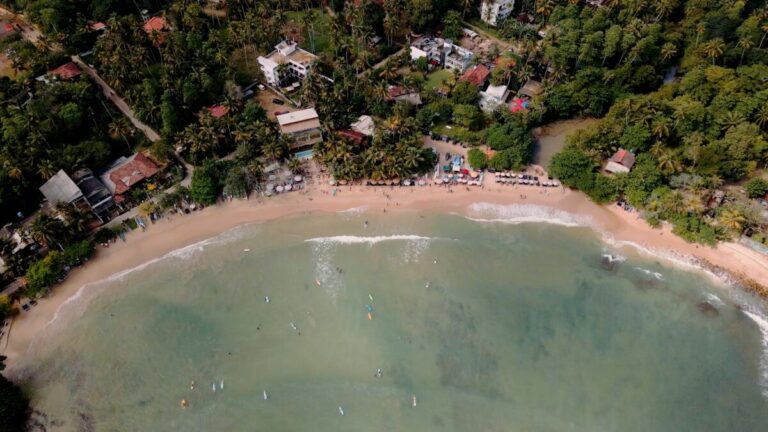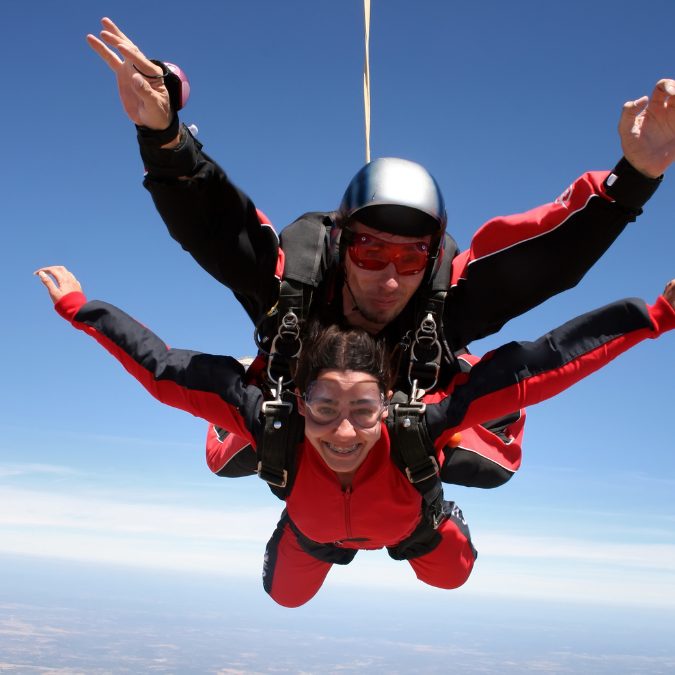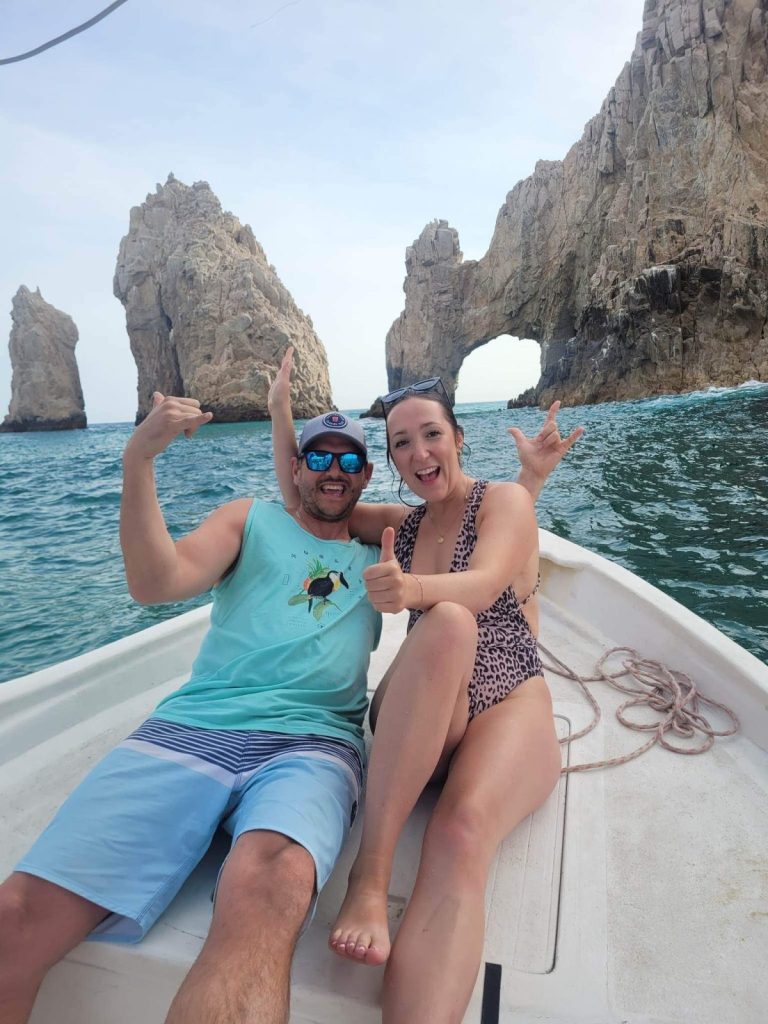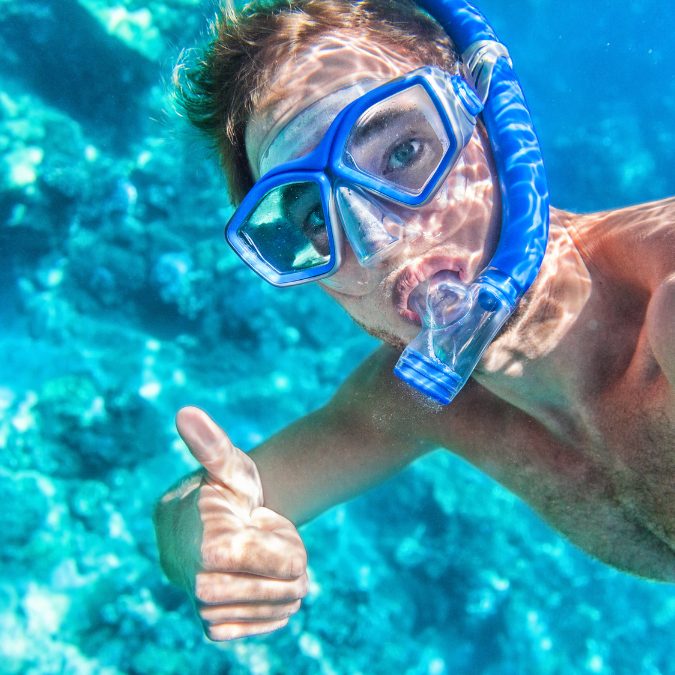How Much Does It Cost To Go Scuba Diving?
Embarking on a scuba diving journey is like opening a door to a world beneath the waves—a world filled with vibrant marine life, awe-inspiring coral reefs, and the thrill of underwater exploration.
However, the allure of the deep blue comes with its own set of considerations, particularly the financial investment required to fully immerse oneself in this captivating hobby.
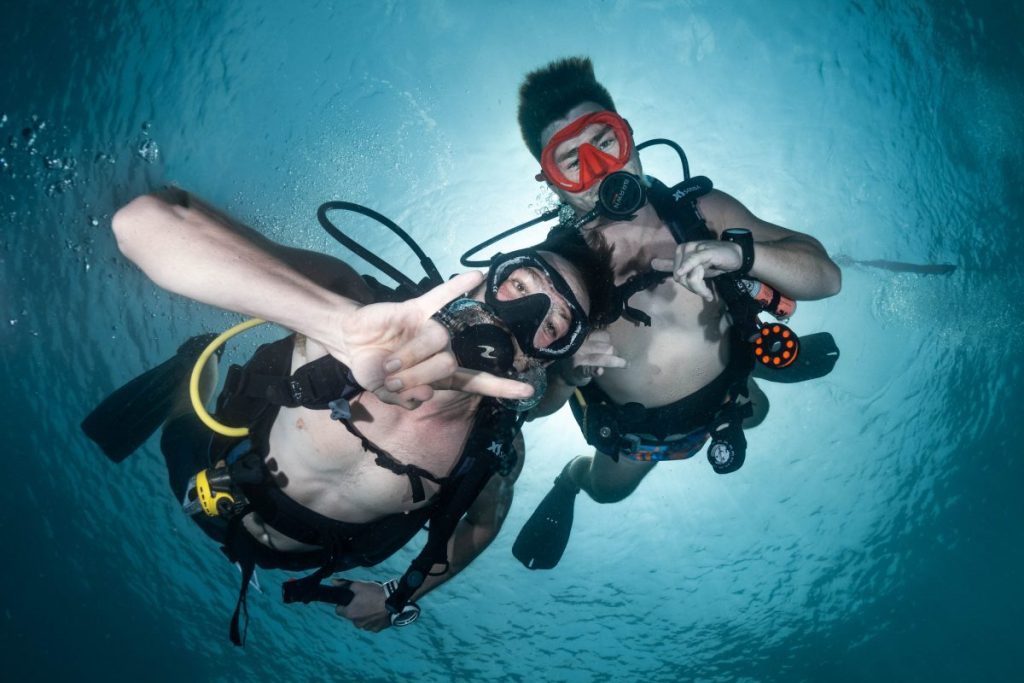
Let’s delve into the depths of scuba diving costs, examining everything from essential gear to advanced training and the priceless experiences awaiting beneath the surface.
General Overview:
- Scuba Diving Course:
- Open Water Diver Course: $300 to $700 USD (may include class time, pool dives, and open water training).
- Certification Fees:
- PADI Open Water Diver Certification Fee: $35 to $70 USD (may vary by region).
- Scuba Gear:
- Basic Gear Set (mask, snorkel, fins): $150 to $300 USD.
- Buoyancy Control Device (BCD): $300 to $800 USD.
- Regulator: $300 to $1,200 USD.
- Dive Computer: $200 to $1,000 USD.
- Wetsuit: $100 to $500 USD.
- Total for owning basic gear: $1,050 to $2,800 USD.
- Dive Trips:
- Local Dive: $30 to $100 USD per dive.
- Boat Dive: $75 to $200 USD per dive.
- Liveaboard Dive Trip: $1,000 to $4,000 USD (or more) for several days.
- Advanced Courses:
- Advanced Open Water Diver Course: $200 to $500 USD.
- Specialty Courses (e.g., Deep Diver, Night Diver): $150 to $400 USD each.
- Travel Expenses:
- Travel to Dive Destinations: Varies widely based on location and distance.
- Accommodation: Varies based on destination and accommodation type.
- Equipment Maintenance and Upkeep:
- Annual Servicing: $100 to $300 USD per year (depending on equipment).
- Miscellaneous Costs:
- Dive Insurance: $50 to $150 USD per year.
- Dive Accessories (e.g., dive bag, gear maintenance tools): $50 to $200 USD.
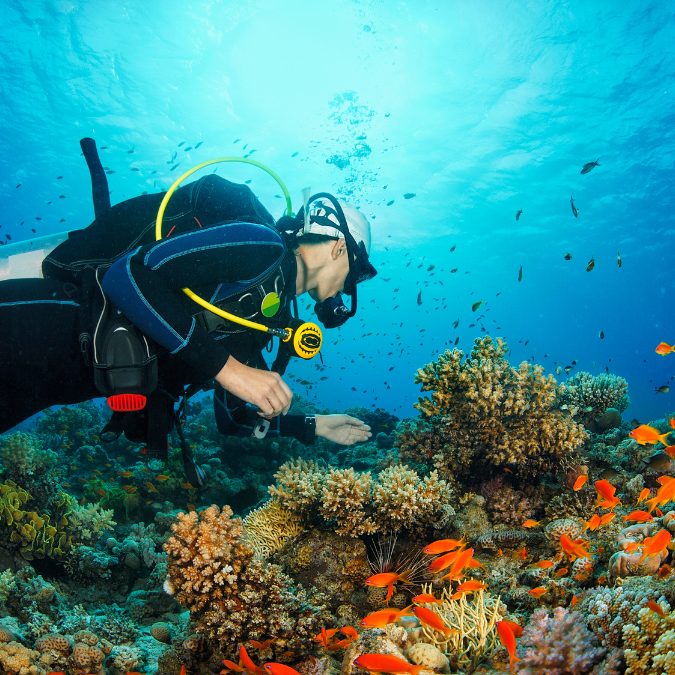
The Foundation: Open Water Diver Course
The journey into the underwater realm begins with the Open Water Diver course. This comprehensive program not only equips aspiring divers with essential skills but also confers the coveted certification that serves as a passport to explore the open waters. Local dive shops across the United States offer this course, with costs varying based on the geographical location, facilities, and the overall reputation of the diving school.
Essential Gear: Investing in Your Dive Experience
Owning personal scuba gear is a pivotal step for any enthusiast. Dive gear includes a variety of essential items such as a scuba mask, buoyancy control device (BCD), regulator, dive computer, and possibly a wetsuit for those venturing into cold waters. While the upfront cost of acquiring your gear may seem significant, the long-term benefits of comfort and personalized equipment make it a worthy investment.
Dive Boat Adventures: Navigating to Dive Sites
Exploring the wonders of the ocean often involves dive boats, especially for open water dives. The cost of boat dives can fluctuate depending on factors like the accessibility of the dive site and the location of the dive school. Boat dives not only provide a means of reaching remote and spectacular dive locations but also add an element of adventure to the overall experience.
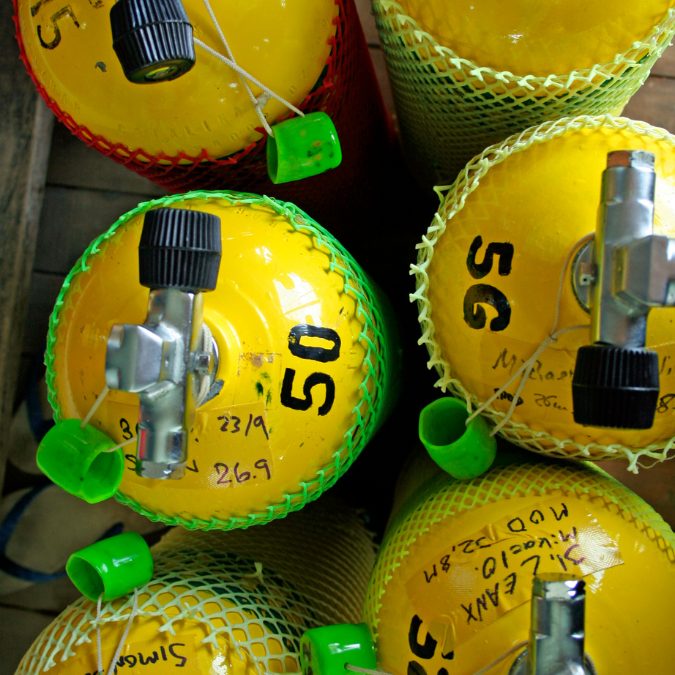
Advanced Training and Specialty Courses: Elevating Your Expertise
As a certified scuba diver, the journey doesn’t end; it evolves. Specialty courses such as deep diver or underwater navigation open doors to new realms within the underwater world. While these courses may incur additional costs, they enhance your skills, making you a more adept and confident diver.
Travel Expenses: Exploring Beyond Local Waters
Divers often find themselves drawn to different dive locations, each offering a unique tapestry of marine life. Travel expenses encompass everything from transportation to accommodation, making it crucial to factor in these costs for a seamless and enjoyable diving experience.
Certification Fees: Recognizing Your Expertise
Certification fees, often associated with organizations like the Professional Association of Diving Instructors (PADI), contribute to the official recognition of your scuba skills. These fees cover administrative processes, certification cards, and affiliations with globally recognized diving bodies.
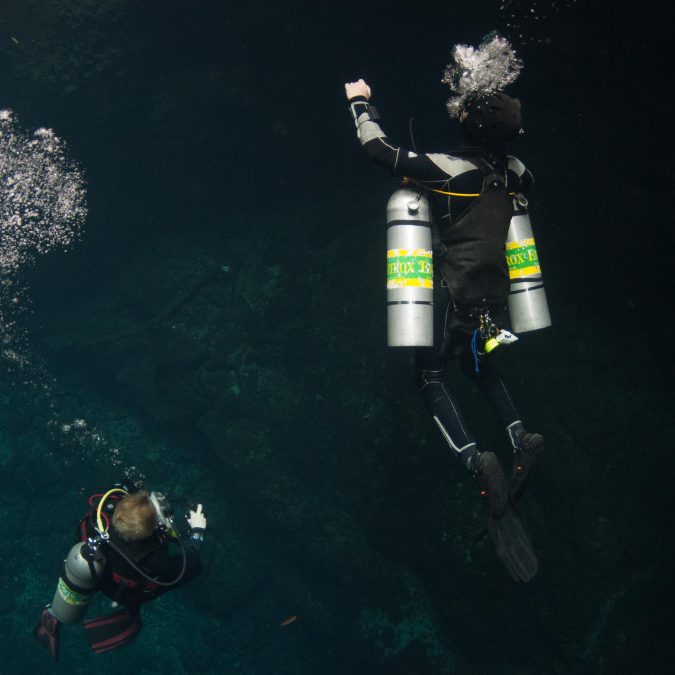
Instructor and Dive Guide Costs: Professional Guidance
For those seeking personalized guidance or hiring a dive instructor for specialized training, additional fees may apply. Professional guidance ensures safety and adds tremendous value to the overall diving experience, particularly for new divers or those pursuing advanced courses.
Maintenance of Dive Equipment: Ensuring Longevity
Owning your scuba gear comes with the responsibility of maintenance. Regular servicing and equipment checks incur additional costs but are essential for ensuring the longevity and reliability of your gear.
Recreational Diving: Beyond Certification
Certification is just the beginning; recreational diving becomes a regular pursuit. Whether it’s a single tank dive or exploring the underwater world through specialty courses, additional costs may arise. Rental equipment, guided dives, or advanced courses all contribute to the ongoing investment in your scuba journey.
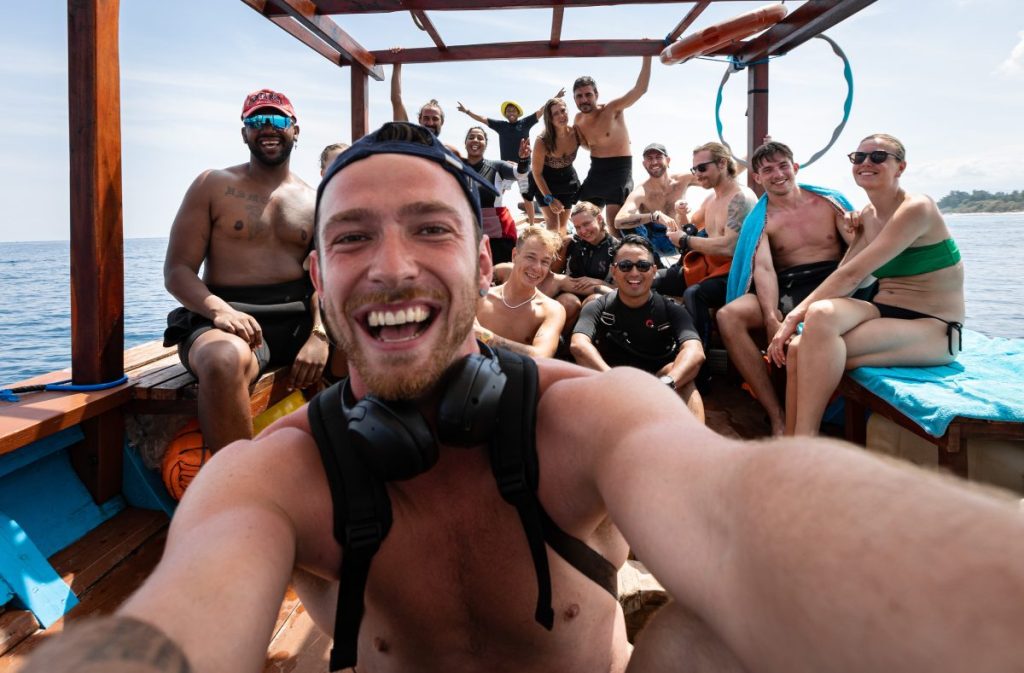
List Of My Favourite Dive Spots:
- Great Barrier Reef, Australia:
- Known for its breathtaking coral formations and diverse marine life, the Great Barrier Reef is a UNESCO World Heritage site and one of the world’s most iconic dive destinations.
- Blue Hole, Belize:
- A natural sinkhole off the coast of Belize, the Blue Hole is famous for its deep, crystal-clear waters and impressive limestone formations. It’s a bucket-list dive for experienced divers.
- Maldives:
- The Maldives, with its crystal-clear waters and abundant marine life, is a paradise for divers. Coral atolls offer a stunning backdrop for encounters with sharks, manta rays, and colorful reef fish.
- Galápagos Islands, Ecuador:
- Renowned for its unique and fearless marine life, the Galápagos Islands offer divers the chance to swim with hammerhead sharks, sea lions, and marine iguanas.
- Red Sea, Egypt:
- The Red Sea is a top-notch destination for both beginners and experienced divers. Vibrant coral reefs, shipwrecks, and a variety of marine species make it a diverse and captivating underwater playground.
- Raja Ampat, Indonesia:
- Considered one of the most biodiverse marine areas on the planet, Raja Ampat boasts stunning coral reefs, vibrant coral gardens, and a rich variety of marine life, including rare and unique species.
- Palau:
- Palau, a Micronesian paradise, offers diverse dive sites, including Blue Corner and Jellyfish Lake. Pristine coral reefs, underwater caves, and the famous Rock Islands make it a dream destination for divers.
- Cocos Island, Costa Rica:
- Known for its hammerhead shark sightings, Cocos Island is a remote and protected marine area. The island’s seamounts and deep waters attract large pelagic species, making it a haven for adventurous divers.
- Thistlegorm, Egypt:
- The SS Thistlegorm, a World War II shipwreck, lies off the coast of the Red Sea and is a favorite among wreck diving enthusiasts. The site is filled with historical artifacts and marine life.
- Sipadan, Malaysia:
- Sipadan is renowned for its underwater biodiversity and the famous Barracuda Point. The island offers wall diving, turtle encounters, and the chance to see large schools of fish.
- Komodo Island, Indonesia:
- Known for its strong currents and diverse marine life, Komodo Island is a UNESCO World Heritage site. Divers can encounter manta rays, sharks, and unique critters in this underwater paradise.
- Cozumel, Mexico:
- Cozumel, located in the Caribbean Sea, is famous for its drift diving and vibrant coral formations. The Mesoamerican Barrier Reef System surrounding the island is a haven for marine biodiversity.
- Lighthouse Reef, Belize:
- Home to the famous Great Blue Hole, Lighthouse Reef offers unique geological formations and diverse marine life. The Blue Hole is a must-see for advanced divers.
- Bonaire:
- Known for its shore diving opportunities, Bonaire in the Caribbean is a diver’s paradise. The island offers easy access to colorful coral reefs and diverse marine species.
- Fiji:
- Fiji’s warm waters, soft coral gardens, and diverse marine life make it a sought-after destination. Beqa Lagoon is famous for its shark dives, offering encounters with bull sharks and tiger sharks.
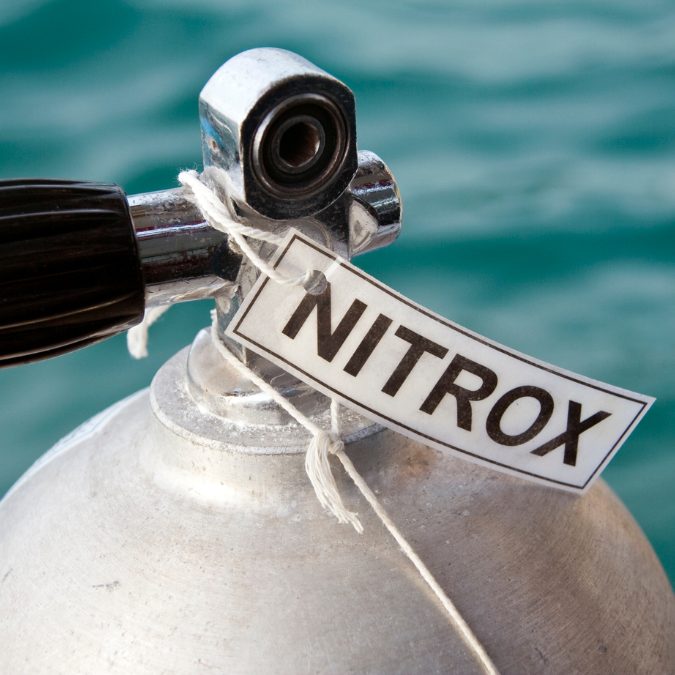
FAQ
1. What is the total cost of getting into scuba diving, including equipment and courses?
The total cost varies based on factors like location, equipment preferences, and the type of courses you choose. Generally, it encompasses expenses for the open water course, own scuba gear, certification fees, and any additional courses you may opt for.
2. Can I learn scuba diving at my own pace?
Absolutely! Many scuba diving courses, especially online ones, allow you to learn at your own pace. This flexibility ensures that you can comfortably grasp the essential skills required for diving.
3. What is the average cost of an open water course at a local dive shop?
The average cost of an open water course at a local dive shop can vary, but it typically includes class time, pool dives, and open water training. Prices depend on your location and the services offered by the dive center.
4. Is scuba diving an expensive hobby?
While scuba diving may have upfront costs, many enthusiasts find it to be a rewarding and invaluable experience. The initial investment in equipment and courses is balanced by the extraordinary underwater adventures that follow.
5. What is the cost of owning your own scuba equipment?
Owning your scuba gear is an investment that can range from a few hundred to several thousand dollars, depending on the type and quality of equipment you choose.
6. Are there extra costs associated with certain types of dives or equipment?
Yes, certain types of dives, like boat dives or dives in cold water, may incur extra costs. Specialized equipment, such as a buoyancy compensator or a thick mm wetsuit for cold water, may also add to the expenses.
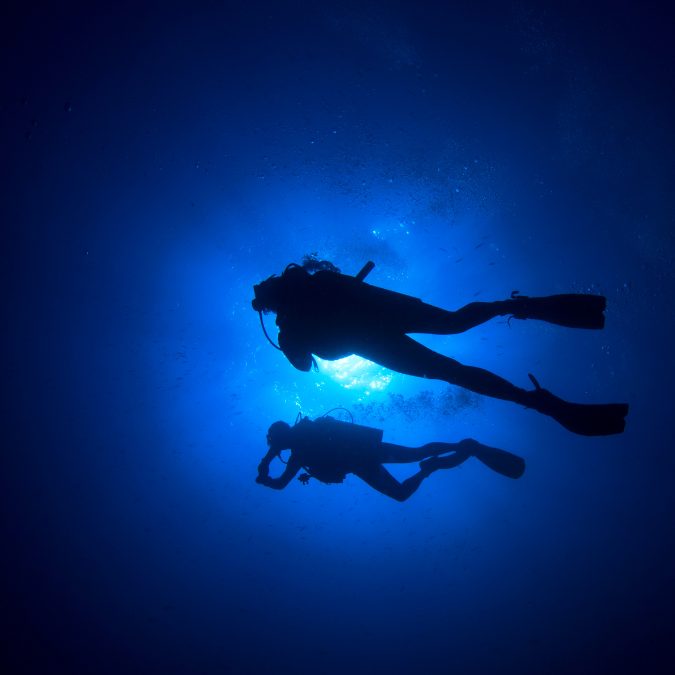
7. How much does it cost to get an open water diver certification?
The cost of an open water diver certification varies, encompassing course fees, certification fees, and any additional expenses for equipment or materials.
8. Are there additional costs after becoming a certified diver?
As a certified diver, you may incur additional costs for guided boat dives, specialty courses, or maintaining and upgrading
your personal equipment.
9. What are the best dive locations and how much do they cost?
The best dive locations vary globally, each offering a unique experience. Costs depend on factors like travel expenses, accommodation, and the local diving scene.
10. Is learning to dive at a PADI Dive Center a good option?
Yes, learning at a PADI Dive Center is an excellent way to ensure high-quality instruction and globally recognized certification. PADI centers offer a range of courses catering to divers of all levels.
11. What is the most common question asked by student divers?
A common question revolves around the total cost and what equipment is necessary for certification. Dive centers are accustomed to answering these queries and providing guidance on the best options.
12. Can I start with a single introductory dive before committing to a full course?
Certainly! Many dive centers offer single introductory dives, allowing you to experience scuba diving before deciding to pursue a full certification.
13. Are there extra costs associated with additional training beyond the basic certification level?
Yes, advanced courses or specialty certifications may have additional costs.
However, these courses enhance your skills and open up new diving opportunities.
14. What is the cost of the basic scuba skills course?
The cost of basic scuba skills courses varies, covering essential skills like buoyancy control and underwater navigation.
15. Are there different shapes and sizes of scuba equipment available?
Yes, scuba equipment comes in different shapes and sizes to suit individual preferences and body types. Dive
centers often provide options for personalized equipment.
16. What is the cost of the course for obtaining an open water scuba diver certification?
The cost of the course for obtaining an open water scuba diver certification includes class time, pool dives, open water training, and any necessary materials. Prices vary among different dive centers.
17. Are there group sizes for dive training sessions?
Group sizes for dive training sessions depend on the dive center and the specific course. Some centers offer personalized instruction with smaller groups, while others may have larger class sizes.
Conclusion: The Invaluable Experience of Scuba Diving
While scuba diving is undeniably an investment, both in terms of time and money, the rewards are immeasurable. The thrill of exploring underwater landscapes, encountering diverse marine life, and mastering the art of buoyancy are experiences that transcend the financial considerations. Scuba diving isn’t just a hobby; it’s a lifelong journey of discovery, with each dive offering a new chapter in the story of your underwater adventures.
So, as you calculate the cost of your scuba journey, remember that the priceless moments beneath the waves make every investment worthwhile. Dive in, explore, and let the ocean unveil its wonders in the most extraordinary way possible.

